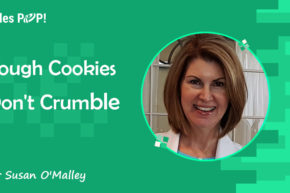The phrase “financial freedom” is a powerful lure in the entrepreneurial world. Many believe it’s simply about earning a high income. However, as CPA and tech strategist Catrina Craft revealed in a recent interview, this assumption is a dangerous myth. After a sudden client loss wiped out 80% of her revenue overnight, Catrina learned a painful truth: a high income without a strategic plan is a house of cards.
This guide distills Catrina’s most potent strategies, offering actionable steps for coaches, consultants, creators, and all entrepreneurs determined to protect and multiply their wealth.
The Wake-Up Call: Financial Security Needs a Framework
Catrina’s experience is a critical lesson: a significant revenue stream means little without resilient financial structures. Hard work is essential, but it won’t save you from an economic downturn or a major client collapse.
Key Insight: Relying on a single major client or revenue source is fundamentally no less risky than a W-2 job. True freedom demands diversification and contingency planning.
Your Immediate Action: Take time each quarter to formally audit your revenue mix and assess your risk exposure. Develop a written contingency plan for income disruptions.
Mastering the Tax Code: The Entrepreneur’s Hidden Advantage
Most entrepreneurs treat the tax code as a burden of compliance. Catrina argues that this is a significant missed opportunity—the tax code is actually a strategy manual designed to incentivize behaviors such as real estate ownership and business investment. Entrepreneurs who overpay taxes are simply failing to use the rules to their advantage.
Key Strategy: Stop settling for a CPA who only prepares your year-end paperwork. You need an accountant who specializes in proactive tax strategy. Schedule semi-annual tax planning sessions—not just during the tax crunch—to leverage every available deduction and credit.
Choosing Your Business Entity: A Tax Decision, Not Just a Legal One
Many default to forming an LLC (Limited Liability Company), but Catrina warns that this is a legal structure, not a complete tax strategy. The way your LLC is taxed—as an S Corp, C Corp, or a sole proprietorship—has profound implications for your bottom line.
| Entity Type | Tax Implication | Key Benefit |
| S Corporation | Requires “reasonable salary” via payroll | Can significantly reduce self-employment tax |
| C Corporation | Potential for double taxation | Useful for large-scale reinvestment and fringe benefits |
Actionable Step: Consult both an attorney and a CPA to determine the optimal entity and tax election for your current income and long-term goals.
This decision is too important to guess at.
Guarding Your Wealth: Pay, Protect, and Separate
Three common mistakes can quickly unravel an entrepreneur’s financial security:
1. Paying Yourself Correctly
If you have an S Corporation, you must pay yourself a documented, “reasonable salary” through payroll; you can’t just take owner draws. The IRS scrutinizes this. If you’re a sole proprietor, stick to properly tracked owner’s draws. Set up a formal payroll system if required and document your rationale for the salary amount.
2. Avoiding Financial Co-Mingling
Mixing personal and business funds is a fast track to problems. This standard error can allow a court to “pierce the corporate veil,” exposing your personal assets to business liability. Open dedicated business bank accounts and credit cards, and never pay personal expenses from business accounts.
3. Building Asset Protection
An LLC or corporation creates a crucial legal firewall, but it’s just the start. Asset protection laws vary by state, and you must maintain corporate formalities (like annual meeting minutes) to ensure the entity protection holds up. Consult a local asset protection advisor and consider additional tools, such as trusts, if your business is high-risk.
The Path to Lasting Wealth: Diversification and Support
Real Estate: The Wealth Engine
Catrina champions real estate because it generates passive income—a stable buffer against fluctuations in business cash flow—and provides significant tax advantages, such as depreciation. Start small with one rental property, then scale up, working with a real estate-savvy CPA to maximize the benefits.
The Right Professional Support
The cost of a tax strategist or a bookkeeper is an investment that easily pays for itself by catching missed deductions and freeing your time for high-value work. Outsource monthly reconciliations and invest in cloud-based accounting software (like QuickBooks Online or Xero).
AI Caution
While AI is advancing, Catrina’s experience showed it is unreliable for complex tax advice, missing tens of thousands in savings and providing incorrect information. Use AI as a supplement, not a replacement, and always verify its output with a qualified professional.
The Bottom Line: Financial freedom is not a stroke of luck; it’s engineered through proactive planning. Stop working in your business and start working on your financial structure.
Next Steps:
- Schedule a strategy session with a tax-focused CPA and an attorney.
- Review and refine your business entity and internal compliance.
- Begin researching your first passive income stream.
Our Host
John is the Amazon bestselling author of Winning the Battle for Sales: Lessons on Closing Every Deal from the World’s Greatest Military Victories and Social Upheaval: How to Win at Social Selling. A globally acknowledged Sales & Marketing thought leader, speaker, and strategist, he has conducted over 1500 video interviews of thought leaders for Sales POP! online sales magazine & YouTube Channel and for audio podcast channels where Sales POP! is rated in the top 2% of most popular shows out of 3,320,580 podcasts globally, ranked by Listen Score. He is CSMO at Pipeliner CRM. In his spare time, John is an avid Martial Artist.







Comments